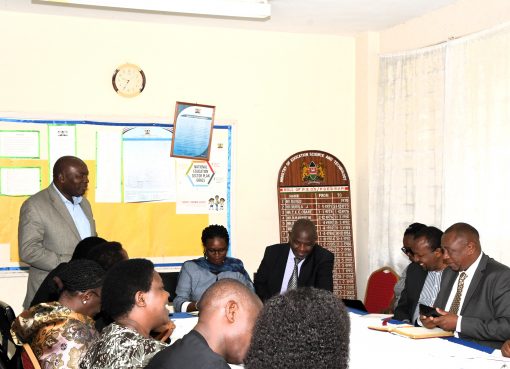A state agency mandated to confirm the authenticity of academic documents has announced that it will recognize certificates issued to Jua Kali trained artisans who pass practical tests conducted by various authorities.
The Kenya National Qualifications Authority (KNQA) Director, Dr. Juma Mukhwana observed that thousands of masons, plumbers, electricians and mechanics among others, who were making significant contributions to the economy had acquired their skills in the informal and non formal sectors.
Under the new arrangement, the Kenya Accountants and Secretaries National Examination Board (KASNEB), Kenya National Examinations Council (KNEC), National Industrial Training Authority (NITA) and Curriculum Development, Assessment and Certification Council (CDACC) will issue academic certificates based on practical performance as opposed to written examinations.
This effectively means that a Jua kali trained tailor, carpenter, mechanic, sculptor or a plumber who has never sat in a formal classroom or Technical Educational and Vocational Training Institutes (TVETS) will be issued with a recognized certificate, just as his counterparts who have undergone years of formal training.
However, this will be subject to the requirement that one must practically demonstrate that he/ she possesses the requisite skills before a relevant examination body.
Dr. Mukhwana said the government was working on a policy shift, where artisans will be given an opportunity to showcase practical capabilities in their respective areas of expertise, before being issued with certificates that will enable them seek employment in both formal and informal sectors where their skills are required.
“We need to bring this skilled pool of formally and non-formally trained manpower to the mainstream of our development. These assessments will be rolled out within the next three months. Most of these skilled people have never been to school but their competencies are running this country,” said the KNQA Director.
He said various skills will be tested in industries, Universities or TVET institutions that have necessary machinery, equipment, personnel and expertise spread across the country.
Dr. Mukhwana said KNQA was working with other stakeholders to introduce Competence Based Curriculum (CBC) in Technical and Vocational Education Training.
For Kenya to achieve a newly Industrialized Status, the Director said, the country has to radically shift from putting emphasis on academic papers and instead focus on individuals’ talents and competencies.
The Competence-Based Education and Training (CBET) policy framework, he noted, is aimed at delivering industry responsive skills.
He emphasized that an effective Technical and Vocational Education Training (TVET) system will play a key role in achievement of the big four Government agenda and Vision 2030.
“CBET concept entails the involvement of industry in all aspects of training. This will include development of occupational standards, training programmes, facilitation of training as well as assessment. We are keen on entrenching CBET in our systems,” said Dr. Mukhwana.
Peter Njiru, from the National Industrial Training Authority (NITA) said the government and the private sector were collaborating to ensure that the curriculum developed by Sectors Skills Advisory Committees (SSACs) is aligned to the competencies required for national development.
He further stated that besides promoting self-employment, TVET was key in the overall development of the country especially the northern corridor projects.
Njiru noted that creativity and innovation were central with the new curriculum, and challenged both public and private sector players to ensure that the market systems reacted to innovations to tap from what the technical institutions would produce.
He said the country had a huge potential to achieve modern industrial and economic status through aligning markets systems to promote innovation, science and technology.
A baseline survey undertaken earlier this year showed that only 42 per cent of TVET graduates pursue self-employment, while 12 per cent pursue further studies, thus TVET is key in enhancing 100 per cent self-employment in Kenya.
The survey showed that 25 per cent of industries currently collaborate with TVET and it was therefore important to forge closer collaborations with them, in the realization of the strategic roadmap, especially in the formulation of the occupational standards and competency based curriculum.
Under the anticipated reforms, 88 new technical and vocational courses will be rolled out in January next year. The new curriculum is crafted to close the practical gap that has been existing in the country’s labour market.
By Jane Ngugi/Dennis Rasto




